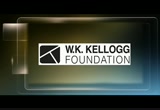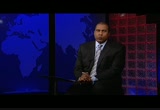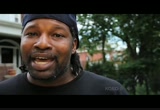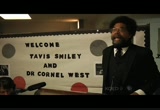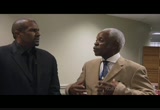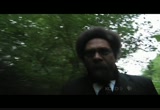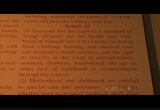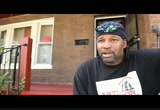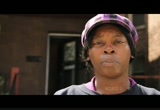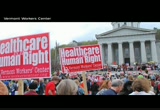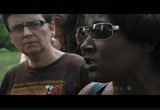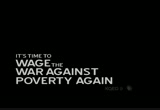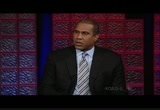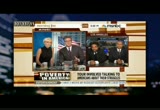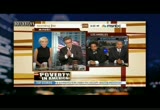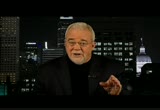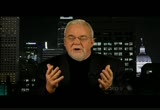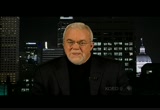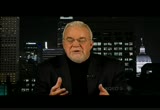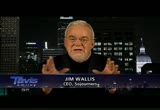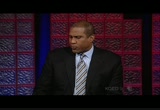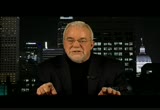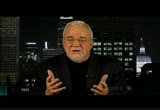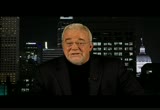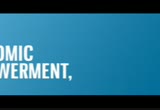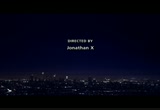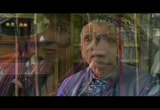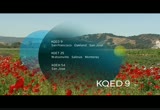tv Tavis Smiley PBS October 17, 2011 2:00pm-2:30pm PDT
2:00 pm
from los angeles, i am tavis smiley. we wrap up our week devoted to poverty. then a conversation with noted theologian and "sojourners" magazine. we will discuss what are we can all play to solve an american tragedy. >> every community has a martin luther king boulevard. it's the cornerstone we all know. it's not just a street or boulevard, but a place where walmart stands together with your community to make every day better. >> nationwide insurance supports tavis smiley. with every question and every answer, nationwide insurance is proud to join tavis in working to improve financial literacy and remove obstacles to economic empowerment one conversation at a time.
2:01 pm
nationwide is on your side. >> brought to you by the aarp foundation. w. k. kellogg foundation, engaging communities to improve the lives of local children. learn more at wkkf.org. >> the annie e. casey foundation, helping to build a better future for american kids and families. >> and by contributions to your pbs station from viewers like you. thank you. [captioning made possible by kcet public television]
2:02 pm
tavis: while many of the men and women we elect to lead on important issues continue to ignore the issue of poverty in america, thankfully there are many groups trying to make a difference. in the final installment of our "flight of the -- fight of the poor." >> we consulted with some people to put forth the effort to reclaim abandoned property. >> one of the things we have been doing that, god has been helping us to educate people who
2:03 pm
have never been poor but they find themselves poor. >> we see these groups working together and we see how they are fighting for things and we can see how these social movements are growing up. >> the effort to end poverty are all of the coalition's and organizations fighting for the plight of the poor. that is the basis why we are on this journey to eliminate poverty. >> the united states must take it upon ourselves to enforce our human-rights. >> changing power structures that really keep a lot of us port generation after generation. -- keep a lot of us poor generation after generation. >> you have to have people that respect people and left people enough to spite. tavis: our poverty tour ended in
2:04 pm
memphis, tennessee where dr. king lost his life. he had launched the poor people's campaign which brought people from all races across the country together to demand an economic bill of rights. >> something is happening in america. there is a direct connection between the warehouse workers and the poverty tour. this is happening in florida, colorado, arizona, happening in the big apple. >> how do i know that if dr. king were here today, he would be talking about poverty? he got shot down like a dog on the balcony in a this, he was there talking about what? poverty for sanitation workers. >> he talked about the evils of militarism and racism and he
2:05 pm
talked about economic justice. these are things that to dr. king were very intertwined. tavis: there are examples here in the wonderful museums of those post a board that you were wearing that said "i am a man." what did that mean to you? >> that made me feel good. most of the time that i was coming up, they would say, look at the garbageman. if i said, i am a man, that made me feel good. >> yes, yes, yes. yes. [applause] >> what martin was trying to get out at that time was taking a people and movement out of the context of civil rights to human-rights. he understood that this was
2:06 pm
something that affected everyone, not just people of color. in this day and age, we have seen the same issue that martin luther king fought for. a lot of leaders have failed to pick up the torch. >tavis: before the launch, king said that there are 40 million people who are poverty-stricken. i have seen them in the ghettos of the north, i have seen them in the rural areas of the south. i've seen them in abolition. i must confess in some situations i have found myself crying. 40 years later, we follow in king's footsteps and across the country we saw people suffering and struggling to survive. like king, we cried. >> the plight of the homeless, the plight of the poor, we have seen this story.
2:07 pm
we're not talking about the plight, we're talking about the fight. that is the basis on which we are on a journey to eliminate poverty. >> that history is still happening today. we're still fighting against militarism. we're still fighting against racism, we're still fighting against poverty. these things are very intertwined. >> we in this will have to come together. we have to come together and began to enforce our human- rights. bin human rights community, we the people of the united states must take it upon ourselves to enforce our human-rights. -- the human rights community, we the people of the united states. >> we can have a toast to the air, we can say that is great work that happened but that work continues today. this happens in young people and movements like in iraq that are
2:08 pm
against the war. these are real people that are organizing within their communities and that is what it is really about is empowerment. >> i met martha, i know that she was from the community and she had the home in public housing. one day she said that she was tired and willing to do whatever it takes to house the children. we decided that we're going to put forth the effort to reclaim the foreclosed properties. >> we fought back and we fought to retrieve this because a lot of people out there don't have a place to stay and are homeless. the people that i work with feel like that is their right. they should not feel like they
2:09 pm
have to sleep on benches or sidewalks. there were people that had reasons like they lost their jobs, they could not make their ends meet. >> at this moment, i have a lot of people that are calling. they are looking to open up these foreclosed buildings. no one is living in them. make them better and put people in them. >> there will be more land liberation going on throughout the united states. there will be more resistance to foreclosures. there will be more extreme takeovers going on soon. >> here in west virginia, in one town a plant was shut down and over half of the population lost their jobs. these were hard working working class, middle class families. one of the things that my organization does is to educate
2:10 pm
what a lot of people want to call the newly poor which are people that have never been pouror. we educate them and let them know that there is not poor, the working class, there is one class. >> these groups are working together and we see how they are fighting for things and we can see how this social movement is going on. they want to campaign for universal health care. they also want rights. we can see the coalition of workers in florida, how they are successfully organizing farm workers and getting what is right for them. we can see around the country how these people are coming together and organizing and are
2:11 pm
stronger and de unlike a change. we want to multiplied what these groups are doing. we want to multiplying the organizing, we want to multiplying the understanding and the commitment and the sacrifice and getting ready to fight. >tavis: we saw those who understood dr. king's legacy and those who want to change the united states we live in. leaders that want to fight. >> we know that we can change this society. there are those that don't have children without education. this is not just about the plight of the poor but the fight of the poror.
2:12 pm
>> when people decide to change the situation, they can change this situation. >> in order for people to survive, they will have to come across racial and economic levels to ensure that the next generation does not go through the same plight we are going through. [applause] tavis: as we close out this week on poverty and america, let me thank the people at the meeting immobilizing project for a d.r. outstanding work -- at the media mobilizing project for their outstanding work. you can log on at any time at our website pbs.org.
2:13 pm
i cannot think of a better way to end the week and speaking with my friend jim wallace -- wallis. always an honor to have you on this program. >> a pleasure. you and cornell had been like preachers on the road. thank you for that. tavis: no better way than to talk about the responsibility of the faith community and the responsibility of all of us who call ourselves believers. those of us who call ourselves people face. let me start with a clip. dr. west and i appeared on a number of programs to promote the poverty tore -- tour. one of the appearances that we
2:14 pm
joe."was on "morning i want to play a clip on how joe scarborough decided to end the program. >> i don't really do this because it seems that christianity is constantly being thrown into primary debates. it happened again this past weekend. how fascinating that despite the fact that many on the right have brought religion out over the past 30 or 40 years, they somehow missed the core of jesus' message. who is getting to heaven, how do we sit on the right hand of the father? that was asked by his disciples. this is what jesus christ said. this is what jesus said, "and the king would say to those,,
2:15 pm
you who are blessed by my father. take my inheritance. i was hungry and you gave me something to eat. i was thirsty and you gave me something to drink. i was a stranger and you invited me in. i needed clothes and you clothed me. i was sit and you healed me. i was in prison and you came to visit me." that was not jesus talking about some side issue. that was him talking about what his ministry was about. this was about taking care of the poor. tavis: i almost shouted out of my chair, on national television when i hear people like joe scarborough, republicans, people on the right suggesting that all of us have a responsibility to the poor. what do you here -- what do you think about hearing people on
2:16 pm
the right discussing poverty? >> i was on the show a few weeks back and he said the same thing. he said there is a new generation of matthew 25 christians. that crosses boundaries, it really is saying and what the profits said in the bible that a nation's integrity, they would save righteousnesses defined not by their g p, not by their military firepower, not by their culture being the envy of the world but how they treat the poorest and most vulnerable. that is what the bible says. that is what god is looking for. i hear this all over the country. tavis: if the community of believers to the gets that, why do we see the numbers of the poor growing in this country so exponentially that we are now almost 50 million americans living in poverty? >> i have seen some clips of
2:17 pm
this amazing week you have had here for and i am hopeful that when you talk about dr. king was killed in memphis for being for garbage workers and was about to begin a campaign. the banner of that campaign song to in a monsoon in washington a few weeks later. i'm hopeful that that will be picked up again because of three things. there are more people touched by poverty in this country now than at any time since the great depression. 50 million americans, that is more than the past 50 years. now, it is touching new poor and people sitting next to me in the pew. the middle class is disappearing we are being touched by now. that will turn this around. second, the faith community is
2:18 pm
more united than i have ever seen it. there is a circle of protection around the poor. the national evangelicals, the catholics. this is not just a religious left. i was at occupy wall street last week. a new generation is engaging. those three things give me a lot of hope. we might be at the beginning of something new. tavis: i was blown away when i started reading these kinds of stories that _ but that increase in the churches, major churches, megyn churches are filing for bankruptcy because their parishioners have so little now to put in the plate. -- mega churches are filing for bankruptcy because their parishioners have so little now to put in the plate.
2:19 pm
this is unprecedented. when people need these institutions to look after them, the churches themselves are going under. >> they are struggling financially but they are also giving more. there are special offerings being taken. i was preaching at a church that sent 47 teenagers to hunt in the gulf coast after katrina. the circle of protection is trying to protect low income people and families who are being cut because of bad choices and bed priorities. in washington, they want to cut $8.5 billion for low income housing while keeping 8.4 billion deductions on second vacation homes. these are choices being made. the churches are saying bad choices. we were told to treat the least
2:20 pm
of these better by jesus. tavis: let me circle, -- let me circle back to the comment that joe scarborough made. people profess their face, how can washington lead at the believers and the white house and on the hill and what we see happening happened to poor people. >> the religious issues, he will hear that these are about abortion and gay marriage and all of the rest. what i'm saying is the religious issue in this campaign are those census bureau numbers. asked that is the religious issue. 22% of our children are poor. the poverty line is 22,000 for a family of four. try living on that for a while. that is a religious issue. any candidate who says they are
2:21 pm
a christian and is not dealing with that is not really raising the true religious issue. this next week, state leaders are sending a letter to every candidate, republican and to mr. obama, to say these census numbers are religious matters. how are you going to respond to these terrible numbers from the census bureau? those are for us will be the face issues in this campaign -- faith issues in this campaign. tavis: let me ask you to talk to me specifically about what the challenges in these difficult time for those who are agnostic and atheist but care about humanity and want to see america become a greater nation. what is the call to us as american citizens? >> there are 2000 vs in the
2:22 pm
bible about poor people. as a seminary in, we took an old bible and a pair of scissors and we cut out all of those verses and they were on the cutting room floor. afterwards there was a bible full of holes. now, there is a new poverty level out by world vision and the bible society. all of those are put back in and they are in orange so we don't miss them. that symbolizes to me how a new generation is putting its bible's back together again. this is whether we will leave the word of god and live it in our lives, churches, neighborhoods, nation. god does not love only poor people, he loves those who live in mansions or hovels. he says as you treat the least of these, you have done with me. we had a meeting with the president and a catholic bishop said, when you go off script, it
2:23 pm
is a lot better. i scripture does not say, as you have done to the middle class, you have done to me. as you have done to the least of these, you have done to me. that is the call. i love being with the kids on wall street because they are understanding that an economy that is not fair, is not sustainable, is not stable, and is not making people happy, is an issue for them. this is a whole new generation coming up. on sunday, they wield a golden calf on to wall street and it said, the false idol on the side. they were chanting blessed are the port, blessed are the peacemakers. -- they were chanting, blessed are the poor. something has gone wrong and we're coming up to say it is time for a change.
2:24 pm
i feel more hopeful than i have ever felt because more people are feeling it, seeing said, tasting it. now, a new generation says we will rise up and change this country. i am feeling very hopeful now. tavis: jim wallis i think you for being on this program. more importantly, i take you for your work on poverty through the years. thank you, thank you. delighted to have you. >> thank you. it will take a movement, tavis. tavis: as a mentioned earlier, if you missed any part of our week of poverty, you can see it all on-line act -- at pbs.org. >> for more information on today's show, visit tavis smiley at pbs.org. tavis: hi, i'm tavis smiley. join me next time for a conversation with
2:25 pm
michael lewis. >> every community has a martin it's the cornerstone we all know. it's not just a street or boulevard, but a place where walmart stands together with your community to make every day better. >> nationwide insurance supports tavis smiley. with every question and every answer, nationwide insurance is proud to join tavis in working to improve financial literacy and remove obstacles to economic empowerment one conversation at a time. nationwide is on your side. >> brought to you by the aarp foundation. w. k. kellogg foundation, engaging communities to improve the lives of local children. learn more at wkkf.org.
2:26 pm
283 Views
IN COLLECTIONS
KQED (PBS) Television Archive
Television Archive  Television Archive News Search Service
Television Archive News Search Service 
Uploaded by TV Archive on

 Live Music Archive
Live Music Archive Librivox Free Audio
Librivox Free Audio Metropolitan Museum
Metropolitan Museum Cleveland Museum of Art
Cleveland Museum of Art Internet Arcade
Internet Arcade Console Living Room
Console Living Room Books to Borrow
Books to Borrow Open Library
Open Library TV News
TV News Understanding 9/11
Understanding 9/11
